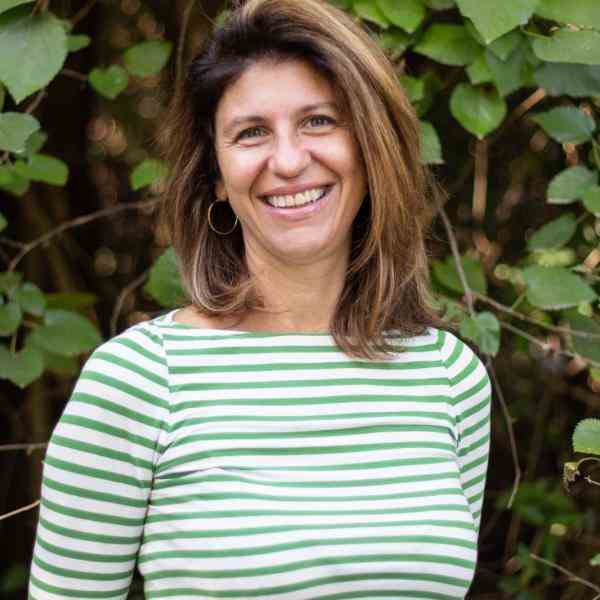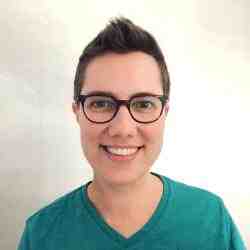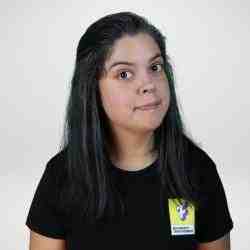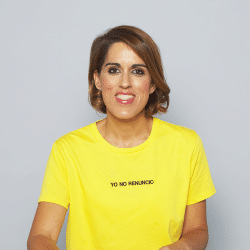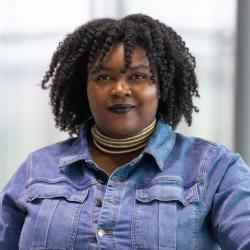Introduction
Mariana Incarnato envisions a society where young people see themselves as positive contributors. Focusing on cultivating their confidence and skills with a range of coaches, mentors and company employers, Mariana is helping them transition successfully to adulthood.
The New Idea
Mariana is equipping the unemployed youth of Argentina with the skills to succeed in their society. Currently six million young people are unemployed and at-risk of staying caught in a cycle of poverty and violence. Most public and social sector initiatives, though, have failed to arrest this cycle, bearing high failure rates. After spending several years working with disadvantaged young people, Mariana determined that they needed a comprehensive program that helped build their confidence and positive values in addition to teaching them basic skills. Doncel is now a recognized leader in the field; combining elements of coaching, mentoring, and technical training to produce a successful and transformational program. Now, other public service initiatives are clamoring to adopt Doncel’s ideas and reproduce them throughout Argentina.
Doncel’s partnerships with coaches, mentors, and corporate clients are critical to its success. Young people who enter the two-year program receive individualized coaching and training, based on their demonstrated talents—which may have gone unrecognized without Doncel’s team of trained psychologists and social workers. They learn basic but crucial self-confidence, job training and employment skills, and technical work. After this initial intervention, young people have the opportunity to apply for and obtain a temporary position at one of Doncel’s allied businesses. Impressed by the well-prepared young people Doncel produces, many major businesses such as Sheraton, that seek temporary workers, have partnered with Mariana to recruit an ongoing pool of new potential staff. Temporary worker portals like Manpower also engage directly with Doncel, opening access to a diversity of quality jobs. The young people maintain their relationship with their coaches throughout their temporary contracts as they implement what they learned on the job. With a strong base of skills and personal and corporate partners supporting them, they gain the confidence and actual track record they need to advance in the labor force.
Mariana has methodically tested Doncel to ensure measurable success rather than spread it fast and superficially. She started with one of the most difficult-to-reach sub-segments among unemployed youth—those living in state-sponsored institutions and about to enter adulthood. They are often most at-risk of further social marginalization after leaving their shelters. Having achieved admirable and unparalleled success in helping them secure permanent jobs, temporary positions or academic pursuits, Mariana is now broadening her focus to tackle the entire population of unemployed Argentine youth. Potential sponsors in the public and private sector nationwide have contracted with Doncel to incorporate its strategy into their work, including the Inter-American Development Bank By packaging Doncel into partnerships rather than implementing it directly, Mariana is quickly expanding her work to achieve national impact.
The Problem
In Argentina youth unemployment has long been a difficult challenge to resolve, and over the past decade of economic instability, many young people have grown up and entered society ill-equipped to succeed. Of the millions of unemployed youth, many lack not only the academic and professional skills needed to compete in the labor market, but also the personal confidence and support network that can help alleviate the feelings of isolation that tend to accompany unemployment. Of these six million unemployed youth, one segment stands out as exceptionally vulnerable—the some 20,000 young people living in state-sponsored institutions. They tend to come from broken, socially marginalized homes where they could be subject to neglect, malnutrition, and abuse. By law these youth can only remain protected in state institutions until they turn 18. Yet when the state releases them back into society, it provides neither assistance nor accompaniment. Unemployed young people lack any guidance during this “transition phase” and become susceptible to risky and illegal behavior, such as joining criminal gangs, who offer the only ostensible option for them to earn money and a sense of acceptance. This will only perpetuate the cycle of poverty and violence to which they have long been subjected.
Unfortunately, programs for professional training tend to be limited in their scope and intervention: they often present simple solutions that are poorly contextualized to the diverse economic and social situations from which the young people come. Furthermore, most public and citizen sector programs dealing with vulnerable youth do not focus on the psychological and emotional consequences of this critical crossroads in a young person’s life. Rather, they only offer superficial basic vocational training that does not address the deeper matters of poor education, lack of family backing, history of dropping out, and low self-confidence.
Once vulnerable and unemployed youth reach adulthood, society expects them to be well on their way to a career, yet their negligible preparation leaves them in extremely precarious and isolating circumstances. Youth coming from the institutions are especially at a severe disadvantage, as the shelters do not include job-training or personal growth curriculum. With low self-esteem, little technical education or vocational experience, and frequently cultural stigmas, they cannot secure any form of meaningful employment or housing. They fall back into situations of marginalization and neglect. On a broader scale, these conditions hold back young people from being able to contribute productively to society.
The Strategy
Doncel is established on the premise that young people possess basic skills in handiwork that are useful and employable in the formal labor market. Doncel is an independent citizen organization (CO) that receives funding from international foundations and some public agencies. So far, Mariana has executed her central strategy among the most ostracized youth leaving state institutions. She focuses more generally on youth unemployment to inform her holistic program; integrating vulnerable youth over the past few years.
As young people begin to transition out of institutions, they come into contact with Doncel’s job training program. Over two years, they participate in an intense, face-to-face experience with trained psychologists, social workers, and human resources specialists. These professionals identify personal interests, employable skills or family ties that the young people already have and prepare them to look for work in industries that demand such skills. For instance, they might determine that a young person who has spent substantial time washing dishes and sweeping floors could find an entry-level job in hotels or the hospitality field. While teaching young people to adapt these skills to commercial work, they also help them to prepare resumes, search for job opportunities, and successfully complete interviews. The youth can opt to go to special training centers where they can take technical classes, such as in computer literacy. With their coaches they also develop values of stronger self-esteem and confidence. Because many of the young people lacked positive adult role models as children, these adults become mentors and champions leaving a lasting mark. These mentors train other new psychologists. The employers also receive special attention from Doncel. They learn how to create a motivating environment for young people that will encourage positive job performance and the pursuit of permanent positions.
Mariana engages working groups and other client organizations in its methodology to prepare young people during this stage of transition. Clients tend to have an institutional relationship with the local public agencies that operate the homes, which allows for an easier transition for youth between organizations. So far, Doncel has equipped the CO País Joven in Rosario, the SION Civil Association in conjunction with the Ministry of Health and Social Development in Tucumán, and Project Via in the Province of Buenos Aires. In the capital, Doncel has worked with the Council for the Rights of Boys, Girls and Adolescents and the Adolescents Program. By training external organizations in their methodology, Doncel can further its impact across the country. Furthermore, these organizations have their own resources that complement Mariana’s programs.
Doncel alumni benefit from a large network of allies. Businesses are attracted to Doncel because of its excellent track record in presenting job candidates who are capable and productive. Most importantly, Doncel has fostered a relationship with Manpower, an online platform to hire temporary workers, to receive and showcase its young people. This opens an incredible resource for them that would otherwise not be available to others transitioning from state homes. Manpower gains a demonstrated source of prepared and well-equipped young job seekers. Mariana has also established alliances with thirty companies to employ Doncel youth. They range from small- and medium-sized businesses, the key driver of the local economies, to the massive international hotel chain, Sheraton, which places graduates in cooking and housekeeping positions. The renewal of Manpower’s and Sheraton’s commitments with Doncel and their expansion of the partnership elsewhere has given confidence to other small- and medium-sized businesses (Mariana’s target audience) the confidence to try her program. These valuable resources enable young people to access temporary jobs that can convert to permanent employment.
Doncel participants are not merely beneficiaries of the program; they are an integral part of its expansion. Alumni may engage their peers through the E Guide (Guía E), an online portal developed with the aid of graduates which connects transitioned youth from homes with those in transition. This community is sustained through virtual and personal communication. The portal serves to create a community among youth who often experience feelings of isolation, anxiety, and fear in anticipation of leaving their institution. Doncel contributors imbue the dialogue with a sense of personal agency and self-determination that they developed through their efforts in the program.
After the two-year Doncel program, Mariana expects its participants will have obtained at least a temporary job. During this position, they can rely on their Doncel mentors and contacts to support them in what is often their first formal job. Almost 40 percent of participants’ employers offer them permanent positions at the same workplace. For those who do not continue after their position ends, they normally find other work or continue their education. This emphasizes the impact of Doncel’s work. Mariana does not necessarily hope that the young people’s first job converts into employment, but rather that they have a positive and life-changing experience in the formal workforce and will continue their professional development and technical expertise.
Mariana is quite ambitious in believing that the program can and will supply meaningful impact for all unemployed youth. Additional alliances with businesses, mentors, and public agencies will not only diversify Doncel’s current activities but also lay the groundwork for her expansion. Mariana has received the confidence of the Inter-American Development Bank, the World Bank, and other foundations that have invested in her for seven years to grow Doncel throughout Argentina and Latin America. She is leveraging her contacts with Manpower, Sheraton and other key business allies to bring the program to other places. These new institutes learn her methodology and rapidly spread it to others. Also, partners within several provincial Ministries of Youth have taken on Doncel. Mariana has also ensured a new means to attract psychologists, coaches, and students as those involved with Doncel engage others as ambassadors for the program.
The Person
After having spent several years teaching English at primary schools and as a second language abroad, Mariana completed her degree in psychology at the University of Buenos Aires in 2000. She moved to Barcelona to start postgraduate studies on issues related to families suffering from social exclusion and family and child interventions. Staying in Argentina would limit her expertise, she thought, and she wanted to learn foreign-born strategies to address family marginalization to later apply in her own country. In the year and a half she stayed at the Autonomous University of Barcelona, Mariana worked as a social educator at an emergency care center for children up to 5 years of age. This experience transformed her understanding of the problem: she especially took note of how the Catalan agency for child welfare respected and safeguarded the rights of the child, even in transitory shelter conditions.
In the middle of Argentina’s economic collapse, Mariana returned to Buenos Aires and worked as a clinical psychologist at the intern facility at the Tobar Garcia Hospital. The majority of patients she attended were adolescents who, after having received intense medical care, remained interned at the facility due to their families’ poverty. This experience caused Mariana to think about family poverty on a child’s development. In 2004 she designed an educational program to help institutionalized youth find work. This pilot, the Doncel program “Socio-Employment Integration of Juveniles in Institutional Residency,” she launched within a CO that she helped to found, Interruption. With Doncel she began to develop partnerships with a network of businesses she called “committed to youth.” Doncel trained young people to take formal jobs at these businesses, and the businesses created nurturing environments to enable them to thrive and excel at their job.
As Mariana supervised and grew the Doncel program, she came to understand that insertion into the labor market was only one aspect of the complex problem that young people leaving the homes confronted. They needed a more holistic experience that incorporated elements of personal development and accompaniment during their transition. Therefore, in 2011 Mariana launched the Doncel Civil Association, to realize her new, more nuanced understanding of the needs of unemployed, vulnerable young people.
